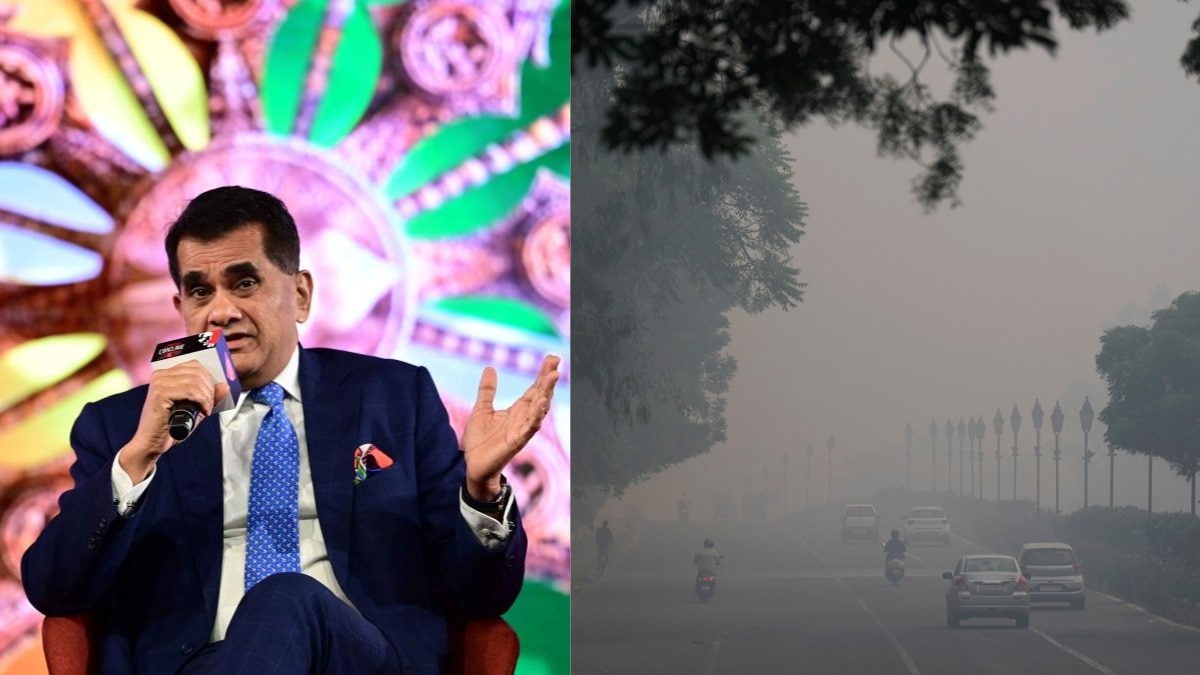‘Right to burn crackers over right to breathe’: Amitabh Kant hits out at SC over firecracker ruling, warns Delhi of ‘health catastrophe’
As Delhi’s air quality plummets once again post Diwali, former NITI Aayog CEO and ex-G20 Sherpa Amitabh Kant has issued a strong statement, calling the situation a “health and environmental catastrophe.” His take came as Delhiites woke up on Tuesday to reduced visibility and the air quality being in the ‘red zone’ after Diwali celebrations last night.
In a post on X, Kant said that 36 of Delhi’s 38 air quality monitoring stations have entered the ‘red zone’, with Air Quality Index (AQI) readings crossing 400 in several key areas — a level considered “severe.”
Criticising recent developments, Kant said, “The Hon. Supreme Court in its wisdom has prioritised the right to burn crackers over the right to live and breathe.”
He added that Delhi continues to rank among the world’s most polluted capitals, questioning, “If Los Angeles, Beijing, and London can do it, why can’t Delhi?” Kant stressed that only ruthless and sustained execution can bring back blue skies to the city.
He called for a unified action plan that includes — ending crop and biomass burning, modernising or shutting down thermal power plants and brick kilns, shifting all transport to electric vehicles by 2030, strictly enforcing construction dust control, ensuring full waste segregation and processing, and redesigning Delhi around green, walkable, transit-oriented living.
Kant concluded by saying that only decisive and relentless execution can restore Delhi’s air quality and make the city livable again.
As per Central Pollution Control Bureau (CPCB), Delhi’s AQI was ‘very poor’ at 352 as of 8 am, 351 at 7 am, 347 at 6 am, and 346 at 5 am on Tuesday. An AQI between 0 and 50 is ‘good’, 51 and 100 ‘satisfactory’, 101 and 200 ‘moderate’, 201 and 300 ‘poor’, 301 and 400 ‘very poor’, and 401 and 500 ‘severe’.
Ahead of Diwali celebrations, the Supreme Court allowed the use of green firecrackers in Delhi-NCR for 2 hours between 8 pm and 10 pm on Diwali day. Many, however, flouted the court directions as celebrations continued late into the night in many parts of the country.


